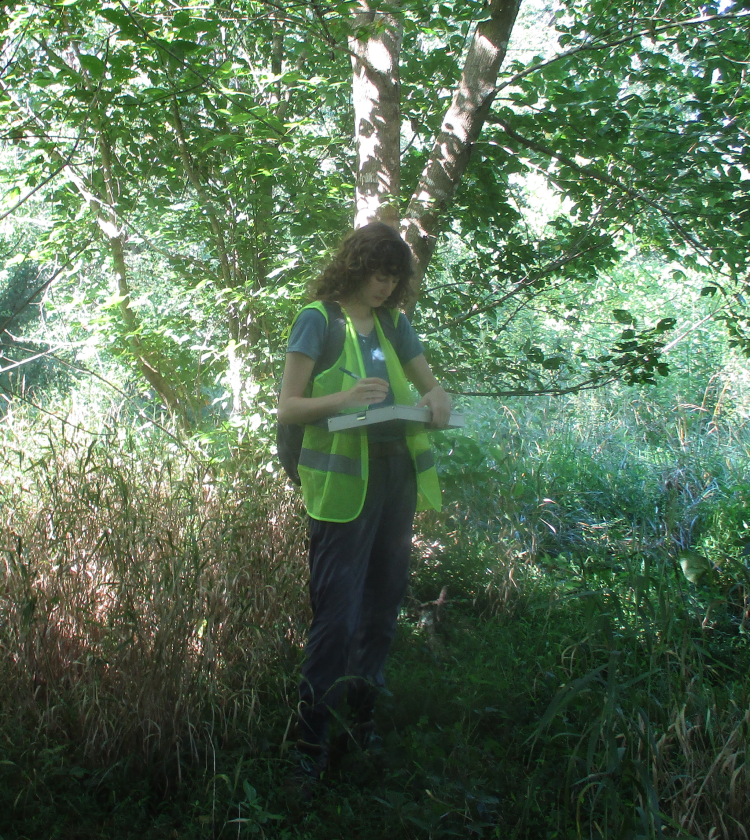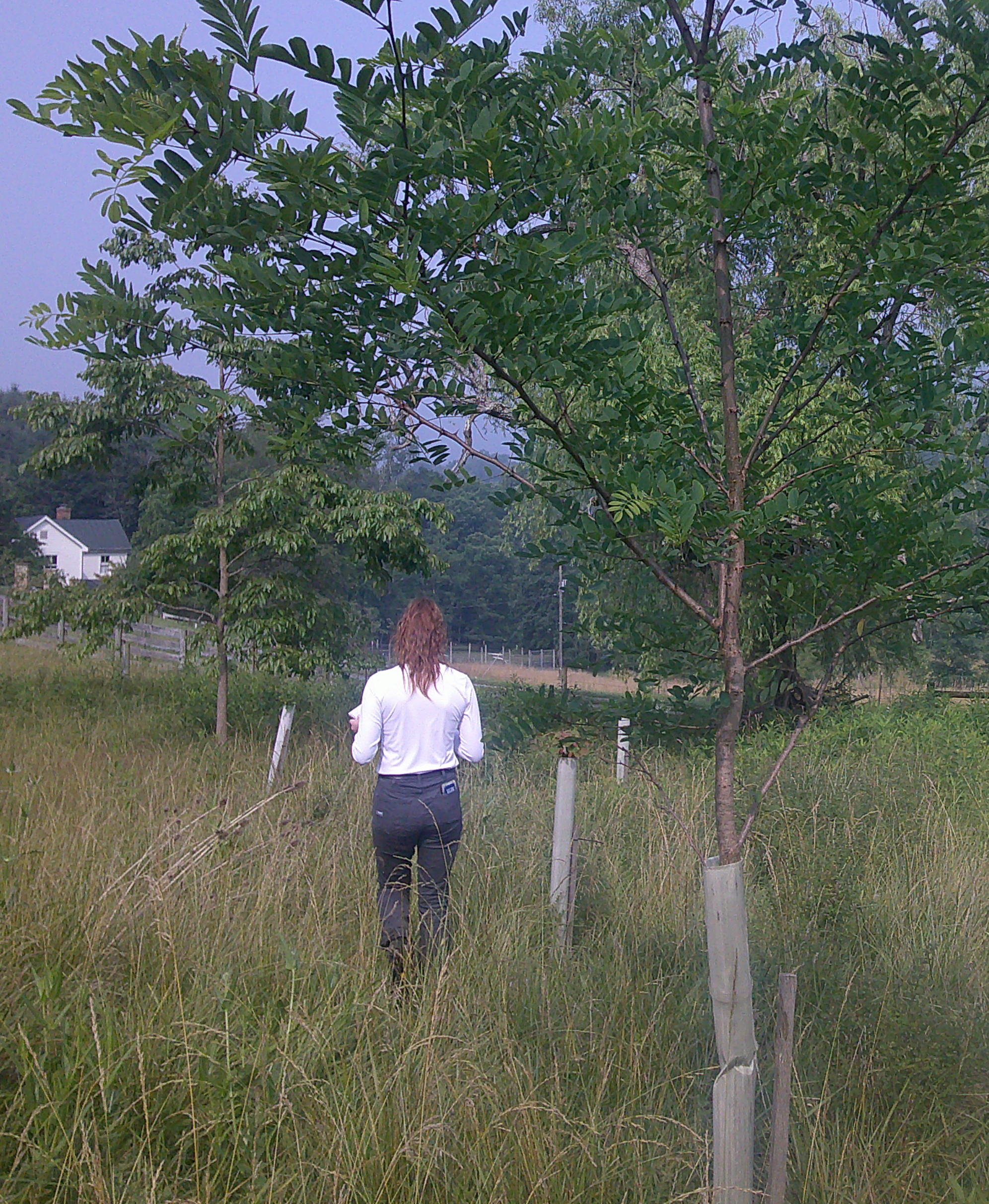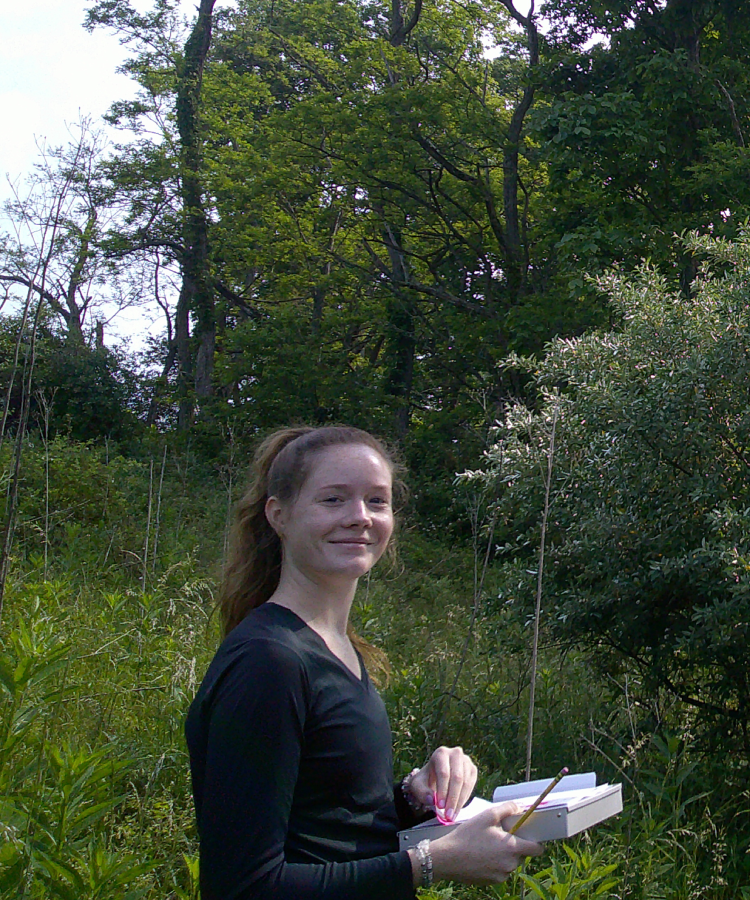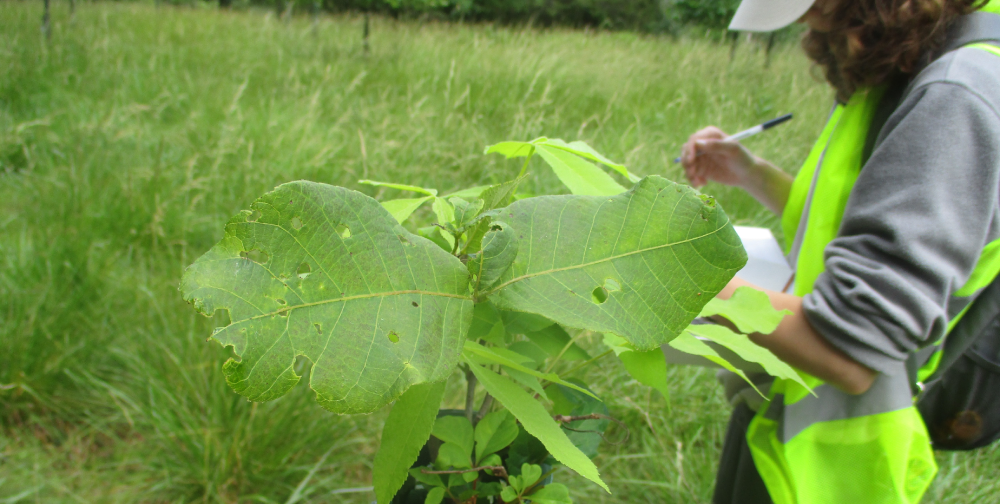In 2022, the James River Stewardship Program (JRSP) was created by the Upper & Middle James Riparian Consortium to promote stewardship of riparian forest buffers. The James River Association (JRA), Virginia Department of Forestry, Natural Resource Conservation Service (NRCS), and the Farm Service agency, with input from over a dozen Consortium partners, developed the JRSP to protect the investment in riparian forest buffers, ensure positive examples of practices, and provide technical assistance through summer internships. Our 2022 interns, Jordan Bennett and Daniel Mitchell, were able to start the program off strong by assessing over 200 acres across almost 30 different buffer sites. Jordan still works for the James River Association as their Restoration Coordinator, and Daniel landed a position with Woodgrain as a forestry technician.

The JRSP continued strong in summer 2023 with four interns. The group assessed over 400 acres across over 60 sites between two regions. Matalin Collins and Mary Hays Scott were based out of Lexington, and Lyndsey Weeks and Lauria McShane were based out of Charlottesville. It’s been almost six months since our 2023 interns finished up for the summer, so what are they doing now?

Q: What are you up to now?
A: Matalin: I am a Senior Engineer in the Department of Environmental Engineering for Chesterfield County.
A: Mary Hays: I am completing my final year at Longwood University. I plan to graduate in May and I am excited to find a job where I can apply my skills!
A: Lyndsey: I’m continuing to study forestry at Virginia Tech. After graduation, I plan on focusing my work on the restoration and conservation of forests.
A: Lauria: I am working for the Piedmont Environmental Council as a part of their Virginia Grassland Bird Initiative, expanding our programming into our more southern regions.
Q: How has the JRSP helped you?
A: Matalin: I gained experience working in the field and seeing firsthand how conservation efforts can work if implemented properly. My current job has me reviewing development plans, and the JRSP really prepared me for that. Working directly with different departments helped me to see how the government operated on a day-to-day basis.
A: Mary Hays: This internship helped me gain valuable experience in the field and working with others from different professional backgrounds.
A: Lyndsey: This internship has given me great experiences working in the field, helped me brush up on invasive species, and has shown me how interdepartmental projects can work.
A: Lauria: The Seasonal Stewardship Assistant position helped me get a feel for what fieldwork is like in conservation. I gained skills in mapping, filling out reports, and coordinating site visits with landowners. I also learned about some of the inner workings of NRCS and important best management practices on farms. These are skills I still use every day in my current position!
Q: Would you recommend this internship to someone else?
A: Matalin: Definitely! I gained so much experience and confidence in the environmental field through this internship and made connections that helped me further my career. Plus, I had a lot of fun!
A: Mary Hays: I would definitely recommend this internship. I gained so much knowledge about invasive species and management practices that I would not have learned anywhere else. This internship taught me how to be confident in challenging situations and to problem solve. Plus I made some amazing friends!
A: Lyndsey: I would highly recommend this internship to someone. I had a lot of fun, learned a lot about how much landowners are doing to help restore riparian buffers, and met some great people.
A: Lauria: I highly recommend this internship for those that want hands-on experience with conservation, sustainable agriculture, or even those who just want to learn more about riparian buffers and the plants that grow in them. Every day was a new exciting experience which was made better by getting to spend the time outdoors in beautiful Virginia!


